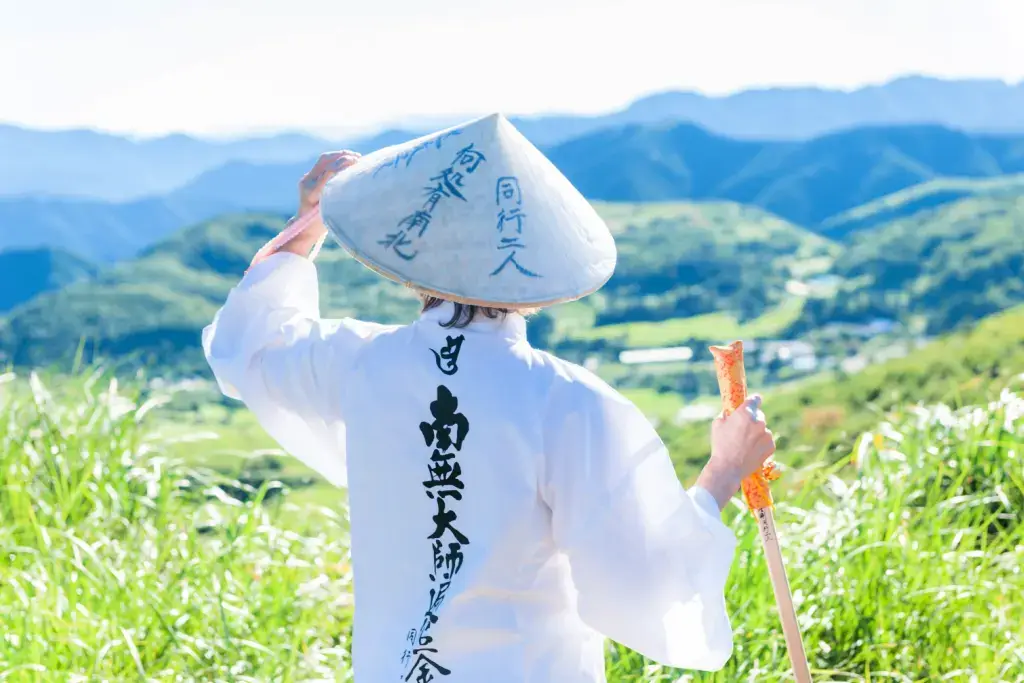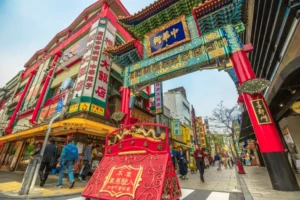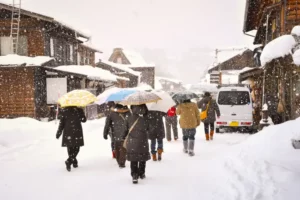What’s a pilgrimage, you ask? Significant and ordinary people embarked on this journey to connect with something greater, something divine. Today, they still travel for religious purposes, to appreciate stunning nature, explore diverse cultures, and immerse in rich history! So, why don’t we explore why these pilgrimages are such a big deal in Japan?
Table of Contents
ToggleWhat is a pilgrimage?
A pilgrimage is a trip to important or holy places for religious or spiritual reasons. People or groups sometimes take these trips to places important to their religion. These places could be a special church, temple, or another important spot. Generally, people go on these trips for different reasons. They want to get closer to their faith or keep a promise to others. Even though they often involve a lot of walking and challenges, it shows their beliefs’ importance to them.
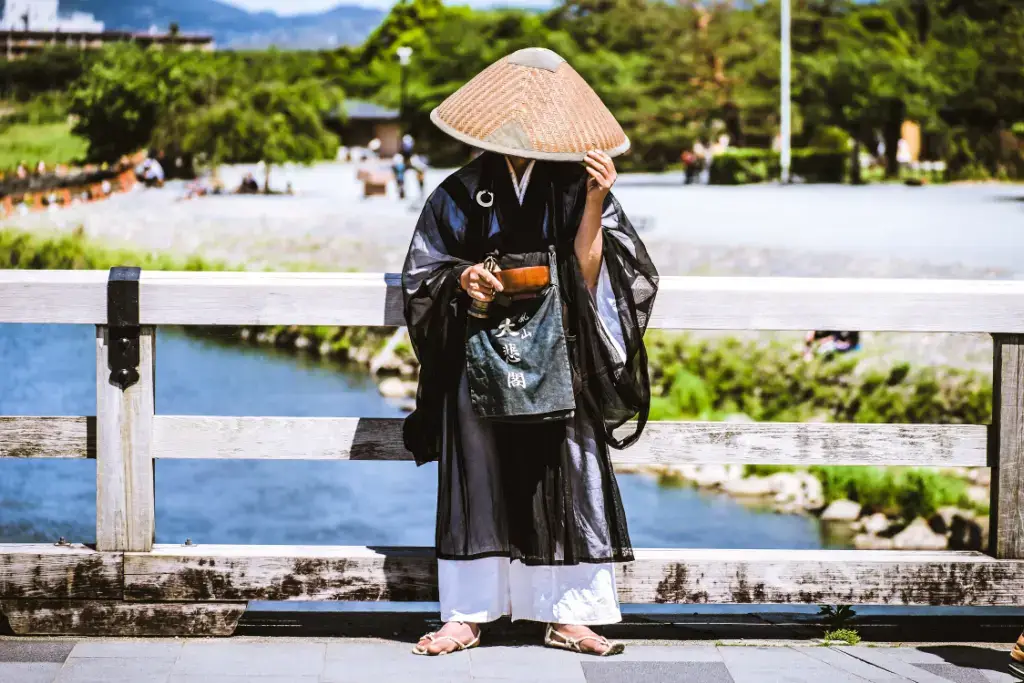
They can be short and nearby or long and far away. Famous pilgrimage sites include Mecca in Saudi Arabia, the Western Wall in Jerusalem, the Camino de Santiago in Spain, and the Ganges River in India. These trips help people feel closer to their faith, find peace, or seek help or forgiveness. On these trips, people do religious activities, pray, and connect with a large community of believers.
Do people take pilgrimages in Japan?
Japan is full of unique spots that have long been important for people looking to find something deeper in life. They include beautiful temples and shrines hidden in the mountains, by the sea, or deep in the woods. These places call out to people who want to go on big adventures that can change them inside and out.
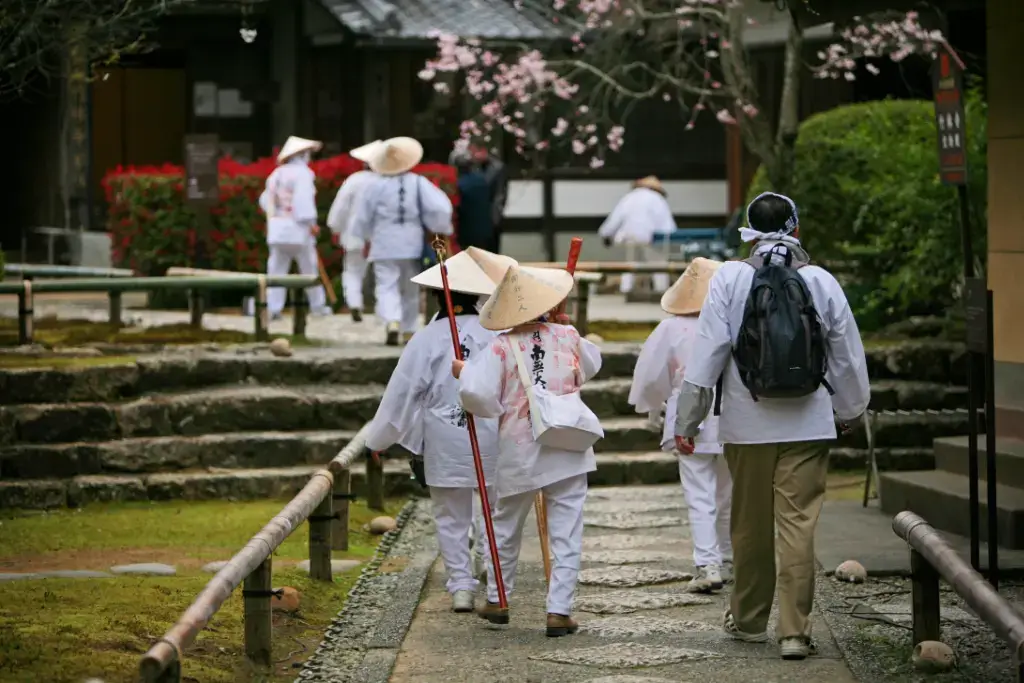
When people go on these trips, which can be long walks of hundreds of miles, they’re not just moving their feet. They’re climbing big hills, walking on tricky paths, and testing themselves. These journeys show how tough life can be and how we can learn and grow from those challenges to find a deeper meaning or connection with something bigger than us.
All over Japan, there are these paths that zigzag across the country. Each path has its own story and unique meaning. Some paths end at old Buddhist temples that have been around for thousands of years, teaching important lessons. Others lead to big, important Shinto shrines that have been places of worship forever. Nevertheless, the people walking them are serious about their actions. They generally seek peace, healing, or a better understanding of themselves and the world. The challenging parts of the journey, like the physical and mental challenges, are seen as chances to grow and awaken something new inside them.
Are you looking for some amazing snacks? Check out Sakuraco! Sakuraco delivers traditional Japanese snacks, teas, sweets, and snacks from local Japanese makers directly to your door so you can enjoy the latest treats from Japan!
What are the most popular courses?
Kumano Kodo
The Kumano Kodo is an extensive network of old paths that go through the mountains on Japan’s Kii Peninsula, leading to special shrines called the Kumano Sanzan. People have walked these paths for over a thousand years, looking for something more in life.
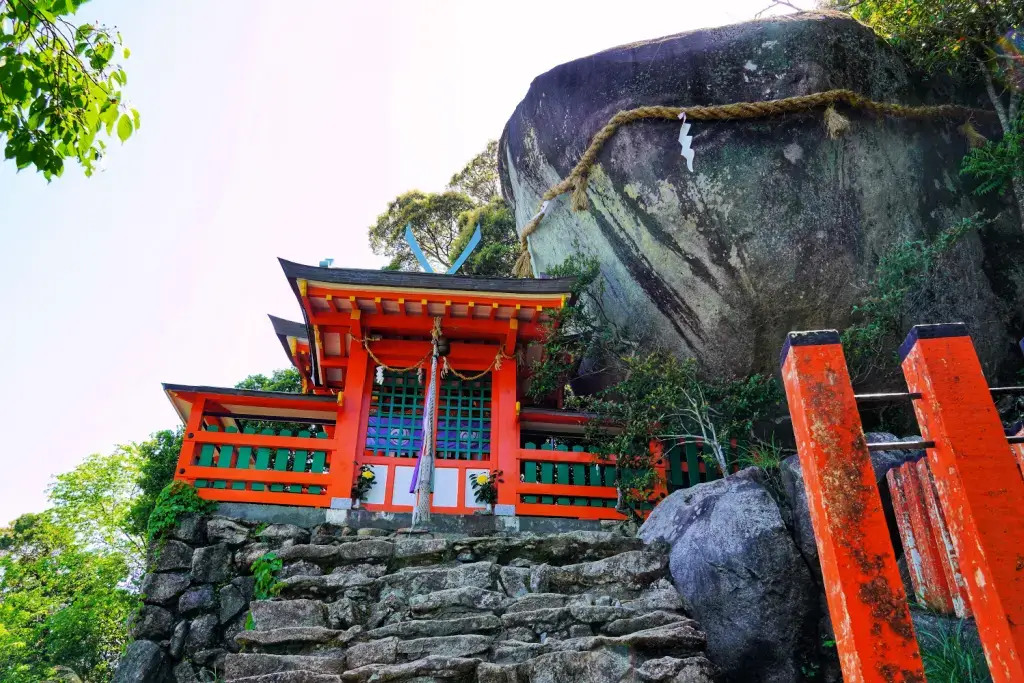
Walking these trails is an excellent way to see the area’s beautiful nature and feel its deep spiritual vibes. One of the main paths, the Ise-ji trail, starts at a significant shrine, the Ise Grand Shrine, and goes to the Kumano Hayatama Taisha shrine. This trail undoubtedly takes you through small, hidden villages, thick forests, and mountains.
As you walk, you’ll see old stone pathways, Buddhist monasteries, and Shinto shrines that have long been critical places for people’s beliefs. Overall, the Kumano Kodo is a chance to walk the same paths that emperors, samurai, and regular folks walked long ago.
Aizu Kannon
The Aizu 33 Kannon Pilgrimage is a special journey that takes people to see 33 statues of Kannon, the goddess who is all about being kind and merciful. The pilgrimage is in the Aizu area of Fukushima. Moreover, the journey passes through beautiful countryside, letting everyone see and learn about the area’s fantastic culture and beautiful nature.
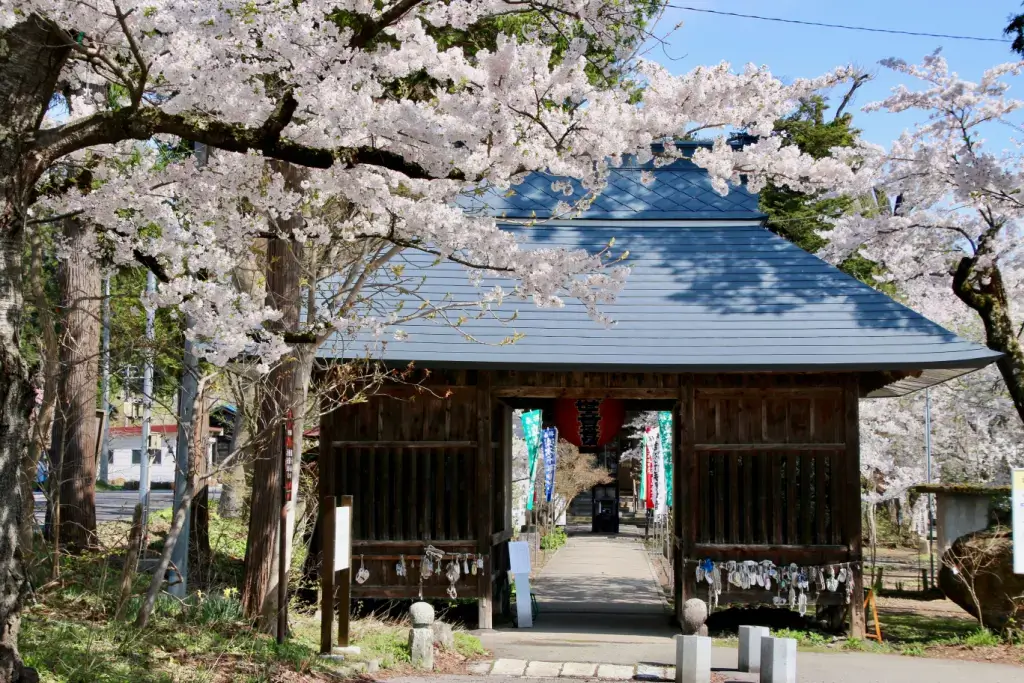
As they go from place to place, people on the pilgrimage check out old towns like Ouchi-juku and visit ancient temples and shrines. Pilgrims can also hear fantastic stories about local traditions, like the tale of the Akabeko red cow. Each of the 33 Kannon statues is different, with its own look and backstory, and people think of them as giving guidance and protection. As a result, people get closer to Buddhism’s ideas; they also get to know the region’s cultural gems and see its people’s strength and resilience.
Nakasendo
Back in the Edo period, the Nakasendo wasn’t just a busy road for people traveling or for officials doing their work; it was also a unique path for people on a religious quest. Buddhist monks and others looking for a deeper spiritual connection also visit holy places and temples hidden in the mountains. They were also on a mission to find spiritual enlightenment or get special blessings by following this ancient path.
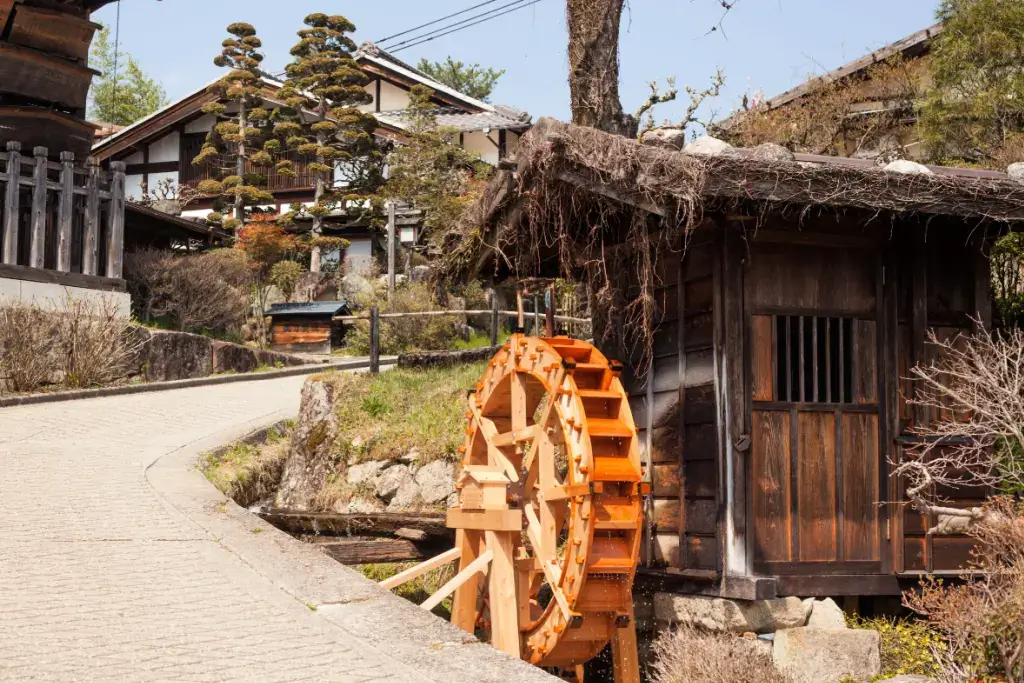
Even now, you can see signs of this old pilgrimage tradition. Along the trail are stone statues of Jizo, known as the protector of travelers, and dosojin, Shinto gods that look after people. One significant spot is the Kiso Valley, mainly because of sacred mountains like Mount Ontake.
Can I go on these pilgrimages?
These ancient pilgrimage routes in Japan are open to modern travelers. Generally, anyone can embark on these journeys to connect with Japan’s rich spiritual heritage and natural wonders. Proper planning is essential, as some routes traverse remote areas with limited amenities. However, the rewards are immense – stunning vistas, historic temples and shrines, and glimpses into centuries-old traditions. All in all, these pilgrimages provide a unique window into the soul of Japan. You only need an open mind, sturdy shoes, and a spirit of adventure to experience their transcendent beauty.


